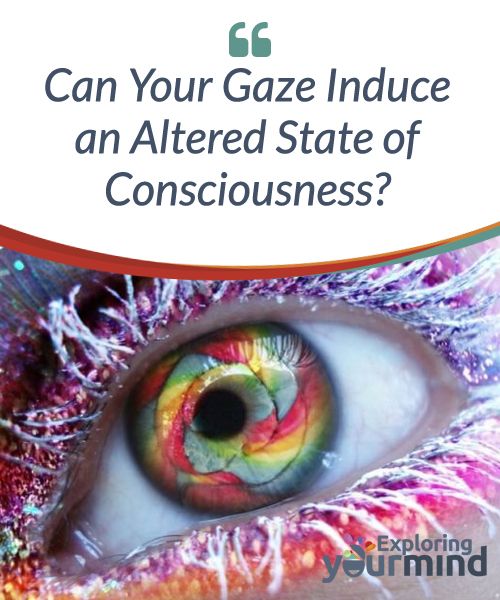The first time people talked about looking like a factor affecting the consciousness of others was centuries ago. Franz Anton Mesmer, an Austrian physician and philosopher, laid the foundation for what would be called “the theory of animal magnetism. “According to its defenders, the human body radiates energy like other bodies, this energy, in turn, influences other bodies.
Based on these concepts, James Braid, a Scottish physician, coined the term “hypnosis” and notes that “sustained eye fixation paralyzes the nerve centers of the eyes and their dependence, which alters the balance of the nervous system, produces the phenomenon”.
“The soul that can speak with the eyes can also kiss with the look. Gustavo Adolfo Bécquer?
One of the methods of hypnosis developed from this way of understanding influence was the “technique of the gaze”. Between belief and knowledge, this technique is applied by talking and looking into each other’s eyes at the same time. Thus, suggestive phrases are introduced, so that we enter a type of intermediate state between awakening and sleep that we call hypnosis.
More recently, a study by researcher Giovanni B has emerged. Caputo of the University of Urbino, Italy, where it seems that the gaze induces altered states of consciousness, this information has not been confirmed by other contemporary research, so we present it here. just as an illustration.
Giovanni Caputo gathered 50 volunteers to conduct his experiment, initially forming 15 couples. The members of each couple sat face to face, a metre away from each other, and had to look their companions in the eye for 10 minutes.
Participants from the other group stayed in a nearby room and performed the same exercise, but did not have to look at each other, but look in the mirror. Finally, both groups responded to a questionnaire that had been prepared for the survey.
According to Caputo’s responses, 90% of those who participated in the experiment had hallucinations in both groups, would they have seen distorted faces or monstrous figures, and noted that they had felt the feeling of being?Actually, on this basis, the researchers concluded that appearance induces altered states of consciousness.
To a completely different goal, Amnesty International conducted an interesting experiment, based on a statement by social psychologist Arthur Aron: that looking at a person for 4 minutes creates unexpected closeness.
Amnesty International has had a small experience with couples made up of European citizens and a refugee from another country in the world, simply asked them to look each other in the eye for 4 minutes and what they wanted to show was that many prejudices disappear when people stop to look at each other, however different.
Without exception, everyone who participated in this experience could feel close to the person in front of them, without exception, they also began loving conversations and developed mutual empathy, the expectation has been proven: no matter where you come from, the language you speak. or the color of your skin. At the end of the day, there’s a human being in you that I can recognize.
The gaze has always been a source of questions and fascination for the human being. There are many myths associated with the power of the eye. The best known is that of “Medusa”, the mythological figure that transforms each person who looks at it into stone. There’s also the myth of “Tiresias,” the blind man who could see the future.
The gaze has so much power that it builds meanings on its own. Every look has an intention: sometimes recognizing it, sometimes making it invisible. When you look and when you don’t look, an effect is created. Are they loving looks? or ‘admiration’. Envious glances give way to the “big eye. “Hate seems to kill or it’s like daggers.
Wherever we “look”, the look has an influence. In this sense, it is worth saying that it creates or alters the consciousness of who is being looked at. Face and take someone out like? Viewed? or “ignored”. With? Discovered? Or past. The eyes, these mirrors of the soul, are a window through which we escape and through which we enter the world of human beings.

